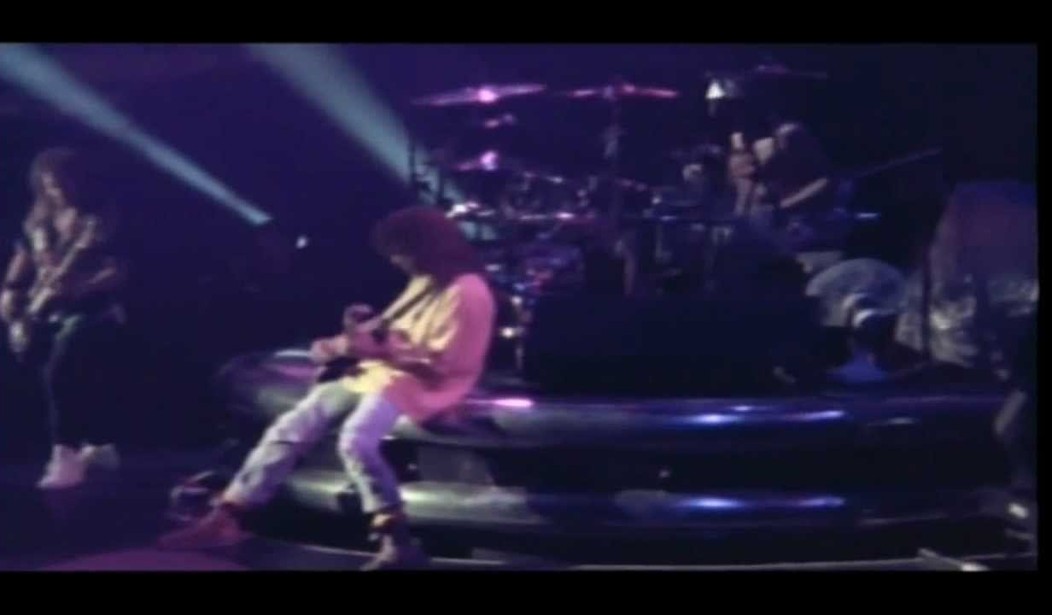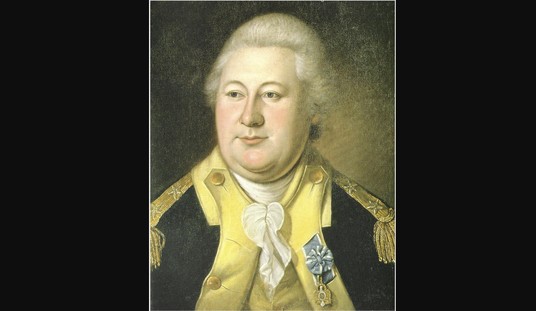Lineup changes happen in the rock music business for lots of different reasons. They can lead to the catastrophic failure of a band, or renewed heights. What follows is an analysis of four monster hard rock/heavy metal bands that experienced a personnel change at the key position of lead vocalist and frontman, and went on to produce anthems for the ages.
1. Van Halen “Poundcake”
By 1991, Van Halen had become Van Hagar. Though the records with Sammy still sold in multiple shades of platinum, a new criticism had surfaced: Guitar Player Magazine’s “Guitarist of the Decade” (1980s) Eddie Van Halen and his band weren’t heavy anymore. In the minds of many hardcore fans, confectionary tunes like “Finish What You Started” (lyrics by Sammy) weren’t getting the job done.
Former lead singer David Lee Roth, quoted in Ian Christie’s good read, Everybody Wants Some: The Van Halen Saga, characterized it best, saying after the release of the second post-Roth album OU812, “it’s a nice, quiet domestic upper middle class rock and roll existence, and I don’t want any part of that.”
“Poundcake,” and its official video from For Unlawful Carnal Knowledge, fixed that. From the opening riff (delivered by a power drill borrowed from a contractor working on Eddie’s house) to the grand finale with all hands pushing max amperage, this ode to extreme sexual proclivity had enough balls-out heft to bring down multiple houses.
Hagar, harkening back to his “Rock Candy” days with Montrose, never sounded better. Michael Anthony’s bass performance is a museum piece of take-no-prisoners heaviosity. Brothers Alex and Eddie drove their namesake quartet back into the killer lane with the album opener, which became the soundtrack for orgasmic head-bangers male and female.
2. AC/DC “Hell’s Bells”
The sad end of AC/DC lead vocalist Bon Scott delivered a serious blow to the fortunes of the Australian band, whose saturation bomb approach to bluesy hard rock had peaked with Highway to Hell.
Scott’s party hard and leave-a-good-looking-corpse ethic had inspired much in the popular music industry, including the Spinal Tap gag about the deceased drummer who choked on vomit that was not his own.
There would be no laid back interlude for these riff-meisters. A tolling bell heralded the return, “Hell’s Bells,” an ominous preamble to the song that introduced leather-lunged new lead singer Brian Johnson.
Moving at the pace of a souped-up McCormick reaper, the surging main riff in “Bells” ground out a tale of diabolical design; AC/DC was Back in Black.
Hundreds of sports stadium public address systems can’t be wrong. No visiting team wants to hear those bells, and everybody else does.
3. Black Sabbath “Heaven and Hell”
The king is dead, long live the king. That sentiment sums up what Black Sabbath fans thought when Ronnie James Dio replaced Prince of Darkness Ozzy Osbourne in heavy metal’s founding band.
The story of how Ozzy ended up out of Sabbath and a victim of his addictions has been well told. He picked himself up, with the fortuitous help of Sharon Osbourne, and retained his superstardom with a stellar solo career.
Meanwhile, the Sabs had no intention of being left behind. Dio’s debut on Heaven and Hell was instantly authenticated by the title track, a mordant trudge into Doom Country, with vocals that somehow managed to uplift the song.
The opening line, “Sing me a song, you’re a singer,” captured exactly what had happened: After Ozzy, Sabbath didn’t miss a death-knelling beat. Caution: this unofficial video demonically captures what all the hoopla was about.
4. Deep Purple “Smoke On The Water”
One sonic truth came through loud and clear when 1968 hippies watched Rod Evans-fronted Deep Purple’s “Hush” rise to number 4 on the Billboard Top 100 singles chart: New guitar slinger Ritchie Blackmore was brilliantly talented. The six-string fills on the song propelled what might have been mere heavy pop into the realms of something to rival guitar Gods of the day, Clapton and Hendrix.
Two albums by this iteration of the band and a record company failure later, keyboardist Jon Lord and drummer Ian Paice met with Blackmore to discuss taking the band in a heavier direction. Evans was let go, Ian Gillan hired, and the resulting LP, 1970s In Rock, secured Purple’s place (with Sabbath and Led Zeppelin) in what would become known as the “unholy trinity of hard rock and heavy metal in the seventies.”
The best was yet to come, in the form of a song featuring what is arguably the most recognizable riff in the history of hard rock, “Smoke on the Water,” from 1971’s Machine Head.
For those not burnt out by umpteenth hearings, here’s the classic Purple line-up with a talented synchronization of the studio masterpiece.









Join the conversation as a VIP Member